INTERNATIONAL INVESTMENT
AND PORTAL
At the Vietnam Industrial Property Forum held last week in Ho Chi Minh City, co-organised by Vietnam Investment Review and BW Industrial Development JSC, participants highlighted the interest of multinational investors in building their factories in Vietnam.
Together with traditional manufacturers such as LG and Samsung, some other newcomers are joining the market, including Fuchs, LEGO, and Pandora.
Vietnam currently has 260 industrial properties in operation and 75 in the planning stage, and compared to Indonesia, Malaysia and the Philippines, the price of industrial land is still relatively low.
In the first four months of 2022, there was $10.8 billion of foreign investment registered in Vietnam, in which additional investment capital was $5.29 billion, up 92.5 per cent over the same period.
“These figures show investors’ confidence as they continue to believe in the business investment environment, as well as solutions and policies for economic recovery,” said Minister of Planning and Investment Tran Duy Dong at the forum last week.
“Vietnam has been preparing the necessary conditions to be ready to receive the new wave of investment transformation, becoming an important production base for the world by continuing to improve the institution and business investment environment. Vietnam is open for business to selectively attract and prioritise projects using modern and environmentally-friendly technologies,” Dong added.
Lance Li, CEO of BW Industrial Development JSC, said that the recent wave of investment in industrial property is a good sign for the local market, which is especially clear when looking at the economic figures for the first quarter of this year.
“You can also see that the prime minister’s visits to the United States have been fruitful. Vietnam is now attractive to many foreign investors and I believe that even more investment will be coming. From our point of view, we welcome competition that makes the market healthier and more sustainable,” said Li.
Meanwhile, Pao Jirakulpattana, vice president for Warburg Pincus in Singapore and China, is competing with many other emerging areas, including Vietnam.
“If you look at the investment flow on a global scale, although it is coming back to China from a global perspective, ASEAN is becoming an attractive destination, including Vietnam,” Jirakulpattana said.
“Vietnam has done pretty well in receiving new investment flows. We highly appreciate the determination of the government to define which sectors should be the top priority. For example, the electronics and power sectors will develop strongly in the next 10-15 years. Vietnam has a good start with intensive labour sectors – however, sustainable development must be more concentrated,” he added.
Bui Trang, general manager of Cushman & Wakefield Vietnam, also expressed that manufacturers from Singapore, the US, and the European community have been moving into Vietnam’s market. “Real estate developers have been very well connected with banks and other financial solutions to raise capital for their businesses. However, they need to focus on long-term financial sources for sustainable development,” Trang said.
Sharing investors’ concerns, Tran Quoc Trung, deputy director-general for the Economic Zones Management Department at the Ministry of Planning and Investment, said that it would be revised to minimise administrative procedures for investors, especially procedures for planning inudstrial zones (IZs) so that investors can implement projects as quickly as possible.
Currently, the ministry has submitted to the government a draft to replace Decree No.82/2018/ND-CP on the management of IZs. In the revised part, many bottlenecks that have existed for a long time will be solved, such as planning and administrative procedures. In addition, there are also a number of regulations added so that when developing an IZ, it is necessary to provide services for workers who live stably and long in the IZ.
At the same time, local people’s committees will also be empowered to issue more mechanisms to attract investment for eco-industrial parks, adding a number of mechanisms and policies so that investors can connect with each other in a smoother manner.
Along with that, a number of other preferential policies such as green credit and environmental protection funds are also added to the decree so that eco-industrial parks can be targeted.
Somhatai Panichewa - General director, Amata Vietnam
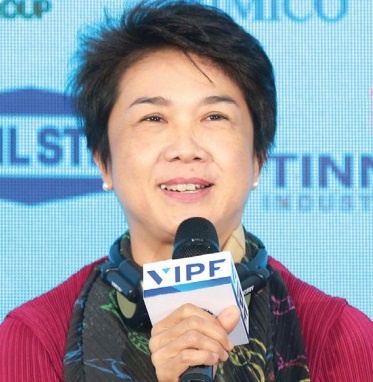
One of the solutions to increasing the attractiveness of industrial real estate in Vietnam is to remove area limits. Vietnam should expand this so that infrastructure investors can develop policies to attract long-term and strategic investment.
Smart industrial cities in the Greater Mekong Sub-Region today all cover over 10,000 hectares. These cities have the highest production, low cost, green energy, and a good environment, as well as very low emissions. That is also the model that Amata Group built and brought to Vietnam. In localities such as Dong Nai or Quang Ninh, the corporation takes the industrial park as the core, with high-profile production and environmentally-friendly features, thereby building a high-quality residential community towards setting up a smart city in the future. From the success at Amata Thailand - Amata Chonburi City, we have made many proposals to discuss further with local authorities in Vietnam about recycled water, green energy, and water reserves as well as city management. The development of smart, environmentally-friendly industrial cities will increase the cost of infrastructure, but it is an effective solution for customers to reduce investment fees.
Therefore, I suggest the Vietnamese government permit a large-scale park. With this, we can come up with bigger plans and cooperate with big partners to make it more competitive. Setting up an eco-IP system is not possible alone. There should be mutual support among secondary investors in the area. Especially, with an IP with a large enough land bank, infrastructure investors can cooperate with large partners to accelerate the construction and completion of a smart industrial city like Amata in Vietnam.
Nelson Wu - CEO, BEST Inc. Vietnam
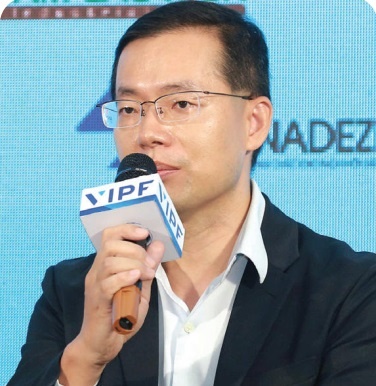
The pandemic has accelerated e-commerce, driving the change in consumer behaviours. At present, e-commerce accounts for a small proportion of total retail. Thus, there are ample opportunities for local and foreign players.
Indeed, Vietnam’s e-commerce market is luring new players. Investments from both existing and new investors are expected to promote the development of the ecosystem.
In addition, supply chains are evolving around the rise of business models. As people expect shorter delivery times and lower costs, it has led to a major change in distribution and warehouse.
It is interesting to note that cross-border e-commerce has risen significantly. Four years ago, cross-border e-commerce between Vietnam and China only accounted for a small proportion of total e-commerce.
However, there have been a larger number of daily transactions recorded for cross-border e-commerce. Indeed, the power of e-commerce technology has changed the way of doing business and trading. As this is the big trend, companies have to adjust their online strategy, consider technology platforms and innovate their products and services to keep up with the game.
Alexander Falter - General director, ECCO
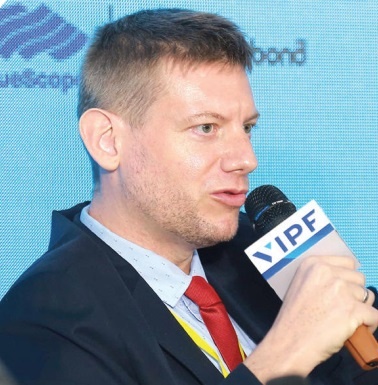
Supply chain headwinds still linger on with rising maritime and aviation transportation fees and a shortage of containers. However, the pandemic offered a chance to restructure the supply chain operation.
For instance, the process of importing a container to Southeast Asia was quite complex even before then. Some countries like Thailand and Indonesia have made new efforts to simplify this paper process.
With regards to bringing manufacturing back to home countries, I see this strategy could be suitable. Indeed, labour-intensive manufacturing segments have been relocated to Asia. However, the labour wage in Asia is increasing, almost to levels seen in other regions.
Therefore, it is better to deploy both strategies. Manufacturers can keep their deep manufacturing operations in their home countries while diversifying their relocations to other regions.
Tran Quoc Trung - Deputy director general, Economic Zones Management Department
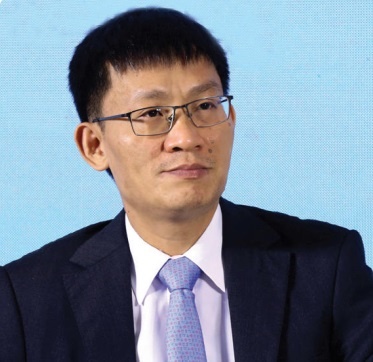
During the past two years, the investment activities of foreign investors were still proactive, which is shown via the increase in the average fulfilment ratio at industrial parks of up to 75 per cent in combination with the increase in the disbursed capital and added capital. This increase shows investors’ trust in Vietnam’s current investment environment.
The Ministry of Planning and Investment submitted a draft decree to replace Decree No.82/2018/ND-CP regulating the management of industrial and economic zones to the prime minister for approval. We hope that the draft decree will be approved this quarter.
There will be many adjustments and new regulations mentioned in the new decree. Notably, the procedures for licensing will be simplified, shortened, and synchronised. The new decree will also add regulations relating to accommodation for employees and foreign experts, as well as social infrastructure, to ensure a stable and comfortable working environment.
Phan Van Chinh - Deputy CEO, IDICO Corporation
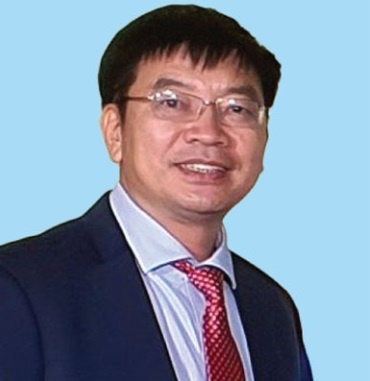
One of the factors ensuring operation efficiency for IZ-based businesses relates to housing. We recently engaged in building decent housing complexes for labourers at Nhon Trach IZ which covers 10ha in phase 1, and an additional 10ha in phase 2 with more than 3,500 units, offering at very competitive price.
The housing blocks are complemented by associated support facilities like sports areas, and kindergartens which also take care of the kids when their parents need to work extra shifts.
For IZ-based businesses, logistics is very important. Foreign investors have shared with me that having a decent infrastructure system is crucial for them as it helps to reduce operation costs and attract profits more quickly.
To propel industrial real estate development in 2022 and beyond, we expect a stable political standing, with conflicts between parties being soon tackled to drive down logistics costs. Infrastructure improvements and closer coordination among IZ developers are also important.
Bruno Jaspaert - CEO, DEEP C Vietnam
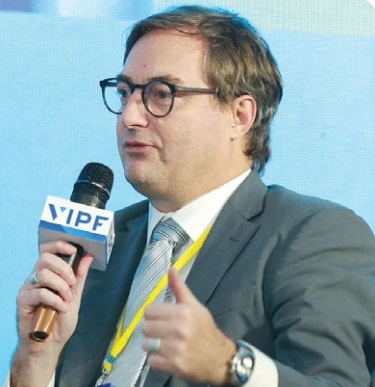
Vietnam’s economy is robust and rising steadily. It is not necessary for Vietnam to compete with China, and it should focus on its own strengths.
At the moment, logistics expenses in Vietnam are among the highest in Southeast Asia, so that is the major roadblock that needs to be addressed to create a level playing field with China.
Vietnam boasts a favourable position and numerous advantages to gain benefits from global capital flows from the China+1 strategy.
In the near term, a highway will help to bridge the gap between China and Vietnam in terms of logistics and supply chain, which is an obvious impetus for Vietnam.
Furthermore, we need to attract and invest in order to create a better business and living environment, develop more services, and bolster buoyant trading activities.
It is also an effective approach to drawing skilled international experts to live and work in Vietnam.
Pham Hong Diep - Chairman, Shinec JSC
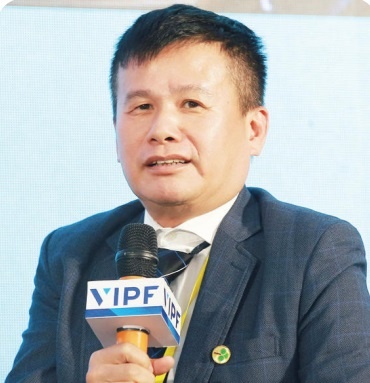
We have developed three circular economic systems in ecological industries, providing investors with significant advantages. Our company blends local culture into the infrastructure of industrial parks with multiple green spaces.
We strive to promote sustainability and innovative ideas while spreading positive messages to future generations.
Vietnam has recently joined the trend of sustainable industrial parks, which has been adopted by several nations. We need to foster an attitude change towards sustainable development and provide investors with the best support in order to maximise their potential.
Regional planning is the first factor to consider in terms of regulation if we choose to invest in industrial real estate. The next phase is to integrate planning and land law. Additionally, environmental law should be considered. There were certain drawbacks to environmental regulations prior to 2022, but the latest environmental law will open doors to businesses.
Peter Nguyen - Chairman and co-founder, Thuocsi.vn

We experienced tremendous disruptions in shipment both domestically and internationally during the pandemic. In response to numerous challenges facing major medicine suppliers, we have developed warehouses nationwide.
As a result, we have an edge, particularly when compared to traditional pharmaceutical manufacturers. China has suffered another outbreak over the past few months, causing significant upstream disruptions. The local supply is insufficient for the country to boost the manufacture of medicine.
Even at the peak of the pandemic last year, we still delivered our products from Ho Chi Minh City to Hanoi on the same day. This is a remarkable accomplishment that demonstrates our efforts to maintain operation.
Currently, we have distribution centres across Ho Chi Minh City and Hanoi and are searching for additional hubs throughout the country. Each hub will feature items connected to the region, thus fostering more flexible delivery.



















